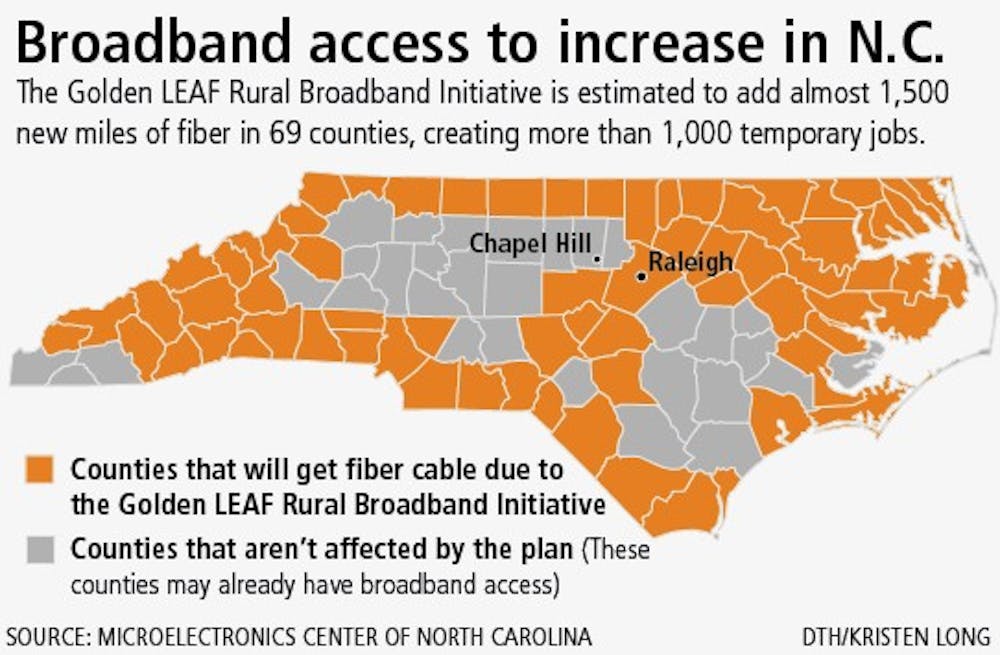The state and federal governments are making efforts to extend broadband Internet access to rural communities.
The Federal Communications Commission released a plan last month that set goals for broadband extension nationwide.
But while the FCC waits on approval from the U.S. Congress, North Carolina has already taken action.
Microelectronics Center of North Carolina, a nonprofit organization that provides information technology services in the state, has plans to extend broadband access to 69 counties in the state through the Golden LEAF Rural Broadband Initiative, creating more than 1,000 temporary jobs.
FCC’s plan modeled after existing university network
The FCC’s plan aims to connect 100 million people to high-speed Internet access by 2020.
It also hopes to extend broadband access to Community Anchor Institutions — sites that will serve as the Internet hubs for the community. Other public institutions can link to those sites to connect to the network.
“We think it’s very exciting. It’s a great opportunity,” said Kristina Scott, public relations representative for National LambdaRail, a nonprofit that provides high-speed network access to research and education institutions across the nation.
The model used to connect universities and other research and education networks nationally has been incredibly effective, and the FCC plans to use that as a model for further extension, Scott said.
Existing fiber is going to be leveraged to expand coverage, but new fiber will have to be laid down as well, she said.
John Leydon, vice president for information resources and chief information officer for the UNC system, said he sees the network used by the UNC system already fitting in nicely with the FCC’s new proposal.
The state’s network currently extends to all UNC-system schools, many private universities that link to the network at their own cost and K-12 public schools. It is also in the process of being connected to all of the community colleges, Leydon said.
North Carolina uses stimulus funds to extend broadband
MCNC is hoping to use two grants of federal stimulus money — one of $28.2 million and one of $111 million — to extend the state’s research and education network.
The initial grant was awarded on January 20 and required a percentage of matching funds to be provided by MCNC, said John Killebrew, vice president of N.C. Research and Education Network community support.
In addition, MCNC is required to spend the grant funds for network extension and complete the work outlined in both proposals within three years of being awarded, he said.
“More than 1,500 anchor institutions, 180,000 businesses and more than 300,000 underserved families will benefit when completed,” he said in an e-mail.
The priority of the stimulus funds is to get the access to public sites, said Nick Didow, associate professor at the Kenan-Flagler Business School, which helped create the second proposal for federal funds.
Through the network extension, the cost of Internet access for households could be reduced by 40 to 60 percent, Didow said.
It is estimated that 1,448 miles of new fiber will be laid down in the 69 included counties, serving 66 percent of North Carolina’s population and 68 percent of its businesses.
“For North Carolina and for America, the National Broadband Plan is a good thing to go after,” Killebrew said.
Contact the State & National Editor at stntdesk@unc.edu.
N.C. already acting on broadband plan
69 rural counties could gain access

DTH/Kristen Long


